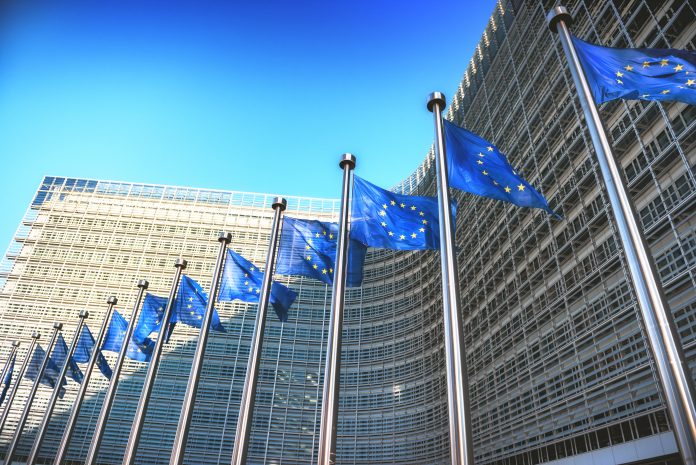Mariya Gabriel, European Commissioner for Innovation, Research, Culture, Education and Youth explains why Horizon Europe, the new EU research and innovation programme, will play a crucial role in empowering EU research and innovation to shape a healthy, green and digital future
The COVID crisis has affected our way of life and caused deep suffering amongst our fellow Europeans. To deal with a crisis of this scale, we needed to come together in support of our researchers and innovators. Boosted by an unprecedented EU emergency investment, they set out to develop, test and distribute PCR tests, detecting the virus within a few hours and vaccines using existing and innovative technologies such as mRNA. In addition, the research efforts have also focused on the treatment of COVID-19 through the EU Strategy for Therapeutics, which is expected to yield three new effective treatments by October 2021.
No country or company could have achieved this on their own. Looking at vaccines alone, more than 380 European companies are taking part in vaccine production, packaging and distribution throughout the continent. The EU also actively promoted open science and sharing research data across the globe through a dedicated European COVID-19 Data Sharing Platform. Set up in April 2020, the platform helps researchers around the globe to share openly their biomedical data in support of speeding up breakthrough discoveries. The platform, hosting over 2.2 million data records, has already received over 5.1 million data requests from over 170 countries worldwide since then. It testifies to the success of European research and innovation and its openness to the world.
A research programme fit for the future
The pandemic has reaffirmed to the world that research and innovation play a fundamental role in shaping a green, digital and healthy future. Horizon Europe, with €95.5 billion the most ambitious EU research and innovation programme ever, will build on the successes of the EU R&I’s response to the pandemic and Horizon 2020 and empower our research and innovation ecosystems to make the EU more resilient. In order to support our ambition and obligation to make Europe the first climate-neutral continent by 2050, the recently adopted work programme for 2021-2022 will direct a minimum of 35% of the funding available to climate objectives.
One of the most exciting novelties of Horizon Europe is the new mission-oriented approach. EU missions will focus on ambitious, time-bound and achievable goals to tackle our biggest challenges. They bring together researchers, innovators, businesses, policy-makers and citizens, to provide them with funding and support to address these challenges together. The Missions, which will serve as pilots of a new approach to policymaking. We identified clear, measurable goals for each mission, such as saving three million lives from cancer, making 150 regions and communities climate-resilient and ensuring that 30% of our oceans, seas and waters are high to fully protected.
We are also introducing a next generation of European Partnerships, bringing together private and public sector partners to support the development and implementation of research and innovation results. This will help us to create critical scales of investment to demonstrate new innovations across Europe. A good example is the Clean Hydrogen partnership, which aims at rolling out new hydrogen technologies at an unprecedented scale, thereby directly contributing to the European Green Deal. Eleven co- programmed Partnerships have already started and will run from 2021 until 2030.
Europe’s innovation potential
Additionally, Horizon Europe underlines the importance of capitalising on Europe’s innovation potential. The new European Innovation Council will provide additional means for emerging and breakthrough innovations by small and medium-sized enterprises and start-ups. The European Innovation Council (EIC) Fund, the first in its kind, provides equity from €0.5 million to €15 million to bridge the financing gap in Europe and helps companies bring their ideas to the market. The EIC has a huge potential to support the recovery and the EU’s ambitions on digitalisation and climate.
Moreover, a key insight that drives the design of Horizon Europe is that the human perspective must be at the centre of European Research and Innovation. The deployment of new technologies and the harnessing of our innovation capacity must be governed by the health and wellbeing of citizens and society as well as the planet; these dimensions of societal transformations are complementary and cannot be managed separately. For this reason, an important novelty in Horizon Europe is a cluster entirely dedicated to culture, creativity and inclusive society. Thanks to this cluster, we will be able to tackle the research and innovation needs of Europe’s cultural heritage, the cultural and creative industries, the socio-economic transitions and challenges to liberal democracy in a holistic way.
International cooperation in research & innovation
Finally, it is important to mention that our ambitions reach beyond the European borders. International cooperation in research and innovation is essential to address global challenges and to enable Europe to work together with researchers and innovators in other areas of the world. The European response to the COVID-19 pandemic testifies to what we can achieve when we combine ambitious goals with strong support for excellent science and innovation. Horizon Europe will build on these achievements and support scientists, innovators, policy-makers and citizens to build a healthy, green and digital future together.











